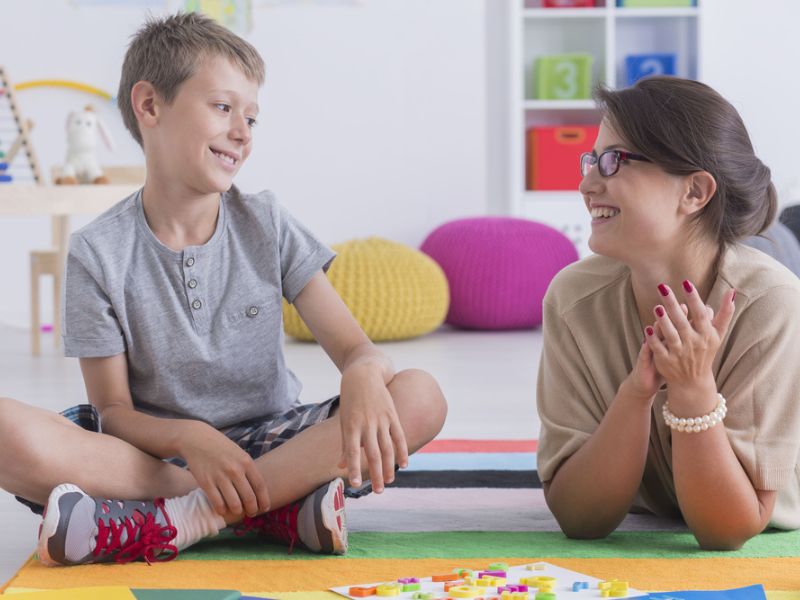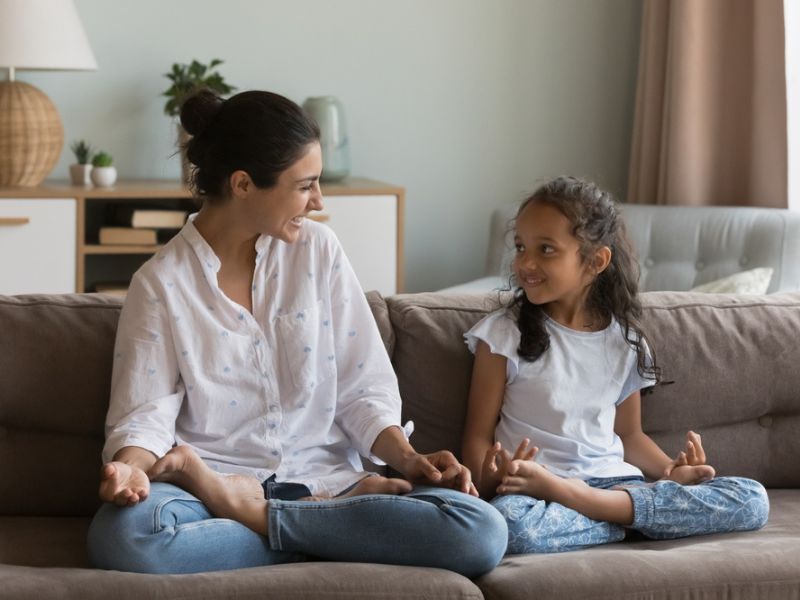Mental health is a crucial aspect of a child’s overall well-being. As a parent or caregiver, it is essential to talk to young kids about mental health in an age-appropriate way that helps them understand the importance of caring for their mental health. Here are some tips on how to talk to young kids about mental health.
Use Age-Appropriate Language
When talking to young kids about mental health, using language, they can understand essential. Avoid using complex terminology and explain things in simple terms that they can relate to.

Image Credit: Shutterstock/Ground Picture
Be Open And Honest
Be open and honest with your child about your emotions and feelings. Kids need to see that everyone experiences various emotions and it is okay to talk about them.
Let Them Express Their Feelings
Ensure your child feels safe and non-judgmental while expressing their feelings and emotions. Let them know that it is okay to feel sad, angry, or anxious and that they can always talk to you about their feelings.
Normalize Seeking Help
Children must know that seeking mental health help is typical and not embarrassing. Teach them that just like we go to the doctor for physical health concerns, we can also seek professional help for mental health concerns.
Use Stories And Role-Playing
Stories and role-playing can be a great way to teach young kids about mental health. Use age-appropriate books, movies, or games to start a conversation about emotions and mental health.

Image Credit: Shutterstock/fizkes
Create A Supportive Environment
Creating a supportive environment at home is critical to promoting good mental health in children. Encourage regular exercise, healthy eating, and good sleep hygiene.
Talking to young kids about mental health with care and sensitivity is essential. Children can build resilience and respect for their mental health by using age-appropriate language, being open and honest, encouraging the expression of emotions, normalizing seeking help, using stories and role-playing, and creating a supportive environment.